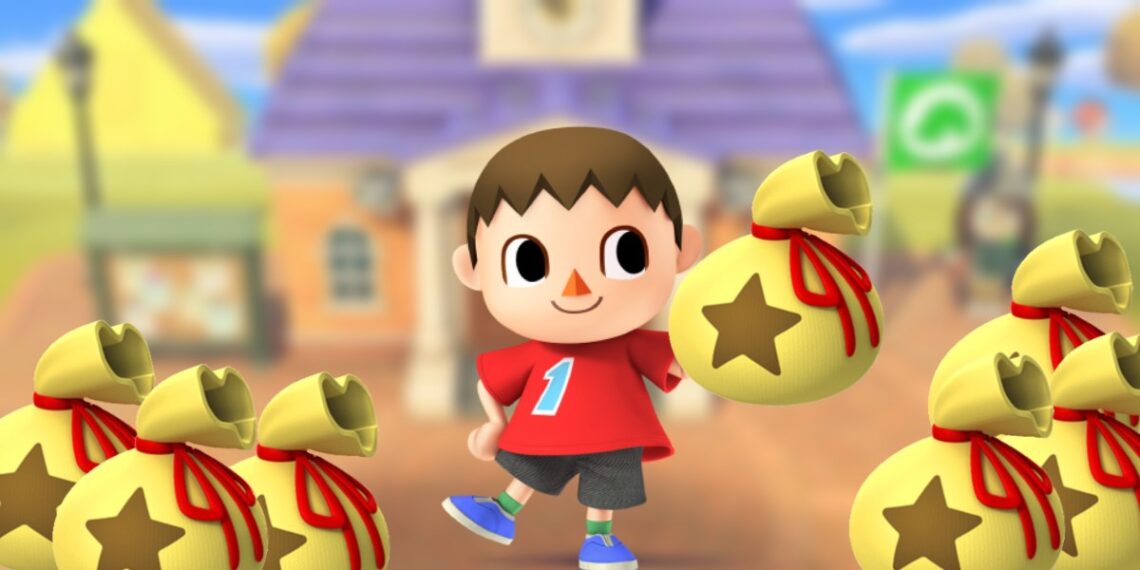Ever since debuting on Nintendo Switch on March 20, Animal Crossing: New Horizons has proven to be a quarantine phenomenon. Nintendo sold more than 13 million copies of the game within six weeks of its release, which made a brief yet significant contribution to the company’s 9 percent net sales increase in the fiscal year 2020.
As the novel coronavirus outbreak continues its rampage across the globe and limits economic activities, countless people have suffered a substantial financial hit. Understandably, people are looking for new ways to make ends meet, and some have found a lifeline in the virtual world of New Horizons. This real-life utility has driven up the game’s sales even more!
Some enterprising players have been trading in-game Animal Crossing currencies for real money. The most popular of these currencies are Bells. You can find a lot of players cultivating Bells and then selling them for hard cash on e-commerce sites like eBay. Need some Bells? If you are willing to pay, you are just an online search away from having some!
23-year-old Lexy, who is fresh out of college, is one of the Animal Crossing: New Horizons players who had been using the game as a stopgap income source. She told Ars Technica how she got the idea and then decided to set up a Twitter profile to discover potential buyers.
“I got laid off due to COVID so I’m farming bells in ACNH,” said Lexy on Twitter, who requested to keep her full name secret to avoid legal complications. “I really need to make rent this month so I’m selling 2 mil bells per $5, please message me if interested, I’ll give you a discount the more you buy.”
However, it’s not just Bells that are in high demand in the virtual Animal Crossing realm. Nook Mile Tickets, Zen furniture, and Golden Tools can also be bought from third-party sellers on the internet. Here’s a bit of information that should help you understand the desirability of these items on the market – there are sellers who made more than $6,500 in Nook Mile Tickets sales from a single eBay listing!
Lexy represents a growing number of Animal Crossing: New Horizons players who are using the game’s resources to keep themselves afloat amid the global financial downturn. But, these traders risk getting a ban from Nintendo as the company highly discourages such practices. With minimal microtransaction offerings, Nintendo has made it clear that it wants Animal Crossing: New Horizons to be a languid gaming experience.
Purists argue that the true beauty of Animal Crossing lies in the game’s relaxed setting and slow progress. Therefore, the emergence of this internal economy has angered a significant chunk of the Animal Crossing community. Many players strongly believe these monetization schemes go against the true nature of the game, and in most cases, Nintendo echoes this sentiment.
Besides the game’s integrity, there are more reasons for Nintendo to be concerned about the rising trend of Animal Crossing currency trading. As Bells become more common as a mode of online transactions, there’s a chance it could be considered a Convertible Virtual Currency (CVC) according to the guidelines of the US Department of Treasury’s Financial Crimes Enforcement Network (FinCEN) at some point in the future.
FinCEN, besides its other responsibilities, is committed to enforcing the Bank Secrecy Act and Anti Money Laundering laws in CVC transactions. The FinCEN definition for a CVC is a digital currency that has a value in real money terms and can serve as an alternative for actual currencies. If Nintendo greenlights Bell trading for real money, it will be declared as a CVC and be subject to appropriate regulatory measures.
To date, there is no video games-specific legislation for monitoring money laundering through microtransactions. This means that criminals are potentially exploiting this loophole to invest or launder money via in-game currencies. Since there is no official surveillance, the amount transferred is untraceable. So, cleaning ill-gotten money through video game currency exchanges remains as a potential cybercrime practice.
That said, the US Treasury has ramped up its efforts to prevent in-game currency transactions spilling beyond in-game economies. It has identified CVCs as a potential funding source for terrorism, organized crime, and other criminal activities. In such circumstances, Bells garnering CVC status would bring a plethora of legal hazards to Nintendo’s door.
On that note, Animal Crossing: New Horizons is not the only game that has spawned a sizable grey market for in-game currencies. The immensely popular battle royale game Fortnite has also been accused of being a utopia for illicit trading. Fortnite developer Epic Games prohibits these trades, but it does little to stop this market from evolving. But growing fears of FinCEN restrictions might change that shortly.
In recent times Washington-based developer Valve has recently updated the microtransaction system for Counter-Strike: Global Offensive. Valve acknowledged the step was taken to prevent criminals from using the game as a money laundering channel. This indicates stricter measures from video game developers in the future to restrain convertibility of in-game currencies to fiat money.
Nintendo is also losing money as unauthorized vendors continue selling Animal Crossing: New Horizons currencies and add-ons. However, the increase in game interaction, base game, and console sales are more than making up for that loss. The Japanese company likely couldn’t care less about players making some extra money through in-game currency trading if there were no threat of looming legal perils.
Therefore, those who are attempting to weather the Covid-19 induced economic slowdown through Animal Crossing: New Horizons enterprises, need to be aware of the fact that this might be a temporary arrangement. There’s no guarantee that Nintendo won’t take a harder stance in the near future regarding this matter and it’s more likely than not they will want to protect themselves from any legal liability.





 (@ACWorldBlog)
(@ACWorldBlog)  (@sleepyvicc)
(@sleepyvicc) 